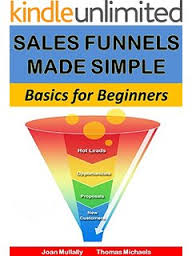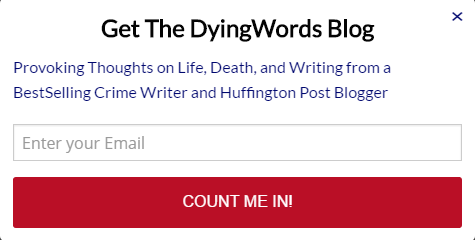 Serious bloggers know the Huffington Post is the world’s largest blog site. Getting published on the Huff Post is a significant badge of achievement — it’s the gold standard of blogging — social approval by a major media corporation that your work meets its mark of excellence. You just can’t buy this kind of exposure.
Serious bloggers know the Huffington Post is the world’s largest blog site. Getting published on the Huff Post is a significant badge of achievement — it’s the gold standard of blogging — social approval by a major media corporation that your work meets its mark of excellence. You just can’t buy this kind of exposure.
As a writer, you have something to say and you should want to hear what others say back. If you have quality content — and that’s the key — you’ll want to say it on the Huffington Post.
“But how in the world do I ever get noticed?” you ask.
Well, it might not be easy, but it can be done. And now that I’m a regular contributor to the Huff, I’ll give you Ten Top Tips on how to improve your chances for getting published on the Huffington Post.
* * *
Tip #10 — Know How the HuffPost Works
 There are four levels of content providers for the Huffington Post:
There are four levels of content providers for the Huffington Post:
Salaried Employees — Such as reporters, journalists, and editors who are full-time — generally based in main centers like New York, Toronto, and London.
Assignment Writers — Who are freelancers and paid a fixed rate to work on specifically commissioned projects.
Contributing Bloggers — Who are unpaid, but are a screened and proven commodity. They may submit posts whenever they choose through the Huff’s exclusive internet portal called Backstage.
Occasional Guest Bloggers — Who submit posts on an unpaid, unsolicited basis. This is the Huff’s slush pile and, for the most part, is a longshot at getting accepted.The good news for unknown bloggers is that the Huff editors are constantly looking for new contributors — especially unique, talented contributors with interesting voices. The challenge is in getting yourself noticed.
 The good news for unknown bloggers is that the Huff editors are constantly looking for new contributors — especially unique, talented contributors with interesting voices. The challenge is in getting yourself noticed.
The good news for unknown bloggers is that the Huff editors are constantly looking for new contributors — especially unique, talented contributors with interesting voices. The challenge is in getting yourself noticed.
Read this article by Huffington Post senior editor, Jason Linkins: How The Huffington Post Works (In Case You Were Wondering).
Tip #9 — Be “The Right Fit”
The Huffington Post truly looks for the “right fit” in their contributors. This is hard to describe as submission style and content varies drastically in categories as diverse as politics to entertainment to minorities’ issues. Here’s a quote from the Huff editor’s cold-call invitation for me to write my first assignment piece:
 Hi Garry ~ I wanted to see how interested / available you are over the coming days to tackle a paid writing opportunity for us, for which I think you would be an excellent fit, based on your experience in forensics and the quality of content I see in your blog at www.DyingWords.net.
Hi Garry ~ I wanted to see how interested / available you are over the coming days to tackle a paid writing opportunity for us, for which I think you would be an excellent fit, based on your experience in forensics and the quality of content I see in your blog at www.DyingWords.net.
After getting over the shock of this invite, I thoroughly researched the subject matter (which was on crime scene cleaning) and what the HuffPost expected in format. My first submission raised the editorial staff’s confidence that I’d be a long-term “right fit” and that led to the next invite — becoming a regular Contributing Blogger with direct access to the Backstage — now with over two dozen articles published on the Huff.
What makes the “right fit”?
The combination of everything you do as a blogger.
It’s in the quality of content you write, the uniqueness of your voice, your professional presence, and your commitment to the craft. It’s in your platform, your brand, and your profile. But — most importantly — it’s in the value you offer to them.
Tip #8 — Add Value
A core value at the Huffington Post is “Idea Is King — every move should be predicated on the integrity of valuable ideas and their value in the marketplace.”
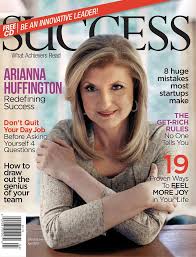 Bear in mind that publishing is an industry that creates products just like any other business. Those products must have a consumer demand in order to be saleable. They must be valuable to a volume of readers, whether for education, entertainment, or enlightenment.
Bear in mind that publishing is an industry that creates products just like any other business. Those products must have a consumer demand in order to be saleable. They must be valuable to a volume of readers, whether for education, entertainment, or enlightenment.
Arianna Huffington has often been quoted saying she likes stories about how you make life work — how you balance work, family, self, and everything else. When planning to submit a blog post to the Huff, take a good look and ask, “How does it add value to someone else? Not just to please or benefit me, but what it will do for the reader and the Huffington Post Corporation? What bottle of wine do I bring to the party?”
Tip #7 — Know Why You Want to be Read on the Huff
We all have reasons for wanting to belong to a club, especially one as exclusive as the Huffington Post Blogging Team. But that doesn’t mean there’s a fee to pay, a small child to sacrifice, or a secret handshake to learn.
 Pure and simple, the Huff Post wants intelligent voices with something unique to offer the Huff community through submission of solid content that has the ability to be shared and commented on. A lot of the voice really depends on the motivation that vocalizes it.
Pure and simple, the Huff Post wants intelligent voices with something unique to offer the Huff community through submission of solid content that has the ability to be shared and commented on. A lot of the voice really depends on the motivation that vocalizes it.
Are you doing this for money? Remember as a contributing blogger you’re not going to be paid by cash. You’ll be paid in social currency and that’s worth a fortune if you parley it.
Are you doing this to promote yourself and/or your product or affiliation? Take that into account when designing your content.
Do you have a hidden agenda? Be careful. The gatekeepers at the Huff are very astute.
Looking back, here’s what my motivation was:
 To be recognized as a credible resource by a large audience.
To be recognized as a credible resource by a large audience.- The potential to profit elsewhere — both in money and self-esteem.
- Networking opportunities.
- Prestige on my platform.
- To build my mailing list through the amplified exposure.
- I had stories and information to share.
- I enjoy helping others.
- To learn from the experience.
The opportunity to blog for the Huffington Post fulfills all this — more than I ever imagined.
Tip #6 — Learn How to Blog Professionally
Here’s the reason that disqualifies more Huff submissions than all others combined — your post is not written to acceptable, commercially-viable blogging standards, let alone to a Huff Post standard.
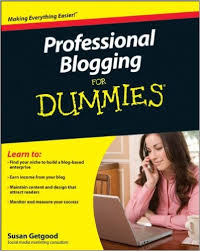 Blogging is an entirely different style of writing from novels, non-fiction, essays, Facebook messages, Tweets, recipes, how-tos, and letters to your grandma. It takes a learning curve — the length depends entirely on your experience and your willingness to learn.
Blogging is an entirely different style of writing from novels, non-fiction, essays, Facebook messages, Tweets, recipes, how-tos, and letters to your grandma. It takes a learning curve — the length depends entirely on your experience and your willingness to learn.
I strongly recommend investing in yourself by taking credible, online training courses in blogging. Not just writing courses. Blogging courses.
You can read all the online tips you want and follow all kinds of more advanced bloggers, but nothing’s going to pay better returns that learning in a structured format from people who are truly experts.
I’ve taken these two courses and attest to their exceptional value:
 Tribe Writers — with Jeff Goins of GoinsWriter.com.
Tribe Writers — with Jeff Goins of GoinsWriter.com.
Blogging Certification Program — with Jon Morrow at BoostBlogTraffic.com.
I promise that no matter your level of skill, these courses will make a definite difference and increase your odds of getting noticed by Huff Post editors.
Tip #5 — Develop Your Voice
What makes a great writing voice?
Here’s a definition I put together in a guide I wrote about blogging for the Huffington Post:
 Your writing voice is the one thing that’s unique to you. It’s your most valuable asset — so valuable that you should buy some insurance on it. And it’s the one thing you have to get right. Right from the start. It’d be a bitch to go back and self-edit voice — if it can even be done.
Your writing voice is the one thing that’s unique to you. It’s your most valuable asset — so valuable that you should buy some insurance on it. And it’s the one thing you have to get right. Right from the start. It’d be a bitch to go back and self-edit voice — if it can even be done.
But what is “Voice”?
It’s your relationship with language — how you use language. Voice comes from the people you’ve met, the books you’ve read, the education you have, and the worlds you’ve inhabited — not just in your body — but in your mind. It’s your personality. It’s your attitude to your writing. It’s how you say things.Voice is your distinctive way of choosing and stringing words together — your writing accent, your views, culture, biases, and formal training. It’s using some goddam profanity every now and then. It’s imagery. Being serious, stuffy, snarky, and sarcastic. Being funny, silly, foolish, goofy, and stupid. It’s your level of confidence speaking through.
 Voice is your distinctive way of choosing and stringing words together — your writing accent, your views, culture, biases, and formal training. It’s using some goddam profanity every now and then. It’s imagery. Being serious, stuffy, snarky, and sarcastic. Being funny, silly, foolish, goofy, and stupid. It’s your level of confidence speaking through.
Voice is your distinctive way of choosing and stringing words together — your writing accent, your views, culture, biases, and formal training. It’s using some goddam profanity every now and then. It’s imagery. Being serious, stuffy, snarky, and sarcastic. Being funny, silly, foolish, goofy, and stupid. It’s your level of confidence speaking through.
It’s your rhythm. Your cadence. Your tone. And your mood.
It’s your emotional guts spilling out. It’s relating gut to gut — not brain to brain. No editing in the world can take an intellectual exercise and make it emotional. Remember — blogs, like novels, aim to evoke emotion in your reader. Get emotional when you write and then again when you revise. “No tears in the writer — no tears in the reader. No emotion in the reader — no interest in the story.”
I like this definition by the Grammar Girl, Mignon Fogarty, who gave me permission to quote her:
 Voice is the distinct personality, the style, or the point of view of a piece of writing or any other creative work. Voice is what Simon Cowell is talking about when he tells American Idol contestants to make a song their own and not just do a note-for-note karaoke version. Many musicians have played The Star-Spangled Banner, for instance, but there’s a world of difference between the Boston Pops’ performance and Jimi Hendrix’s, even though the basic melody is the same.
Voice is the distinct personality, the style, or the point of view of a piece of writing or any other creative work. Voice is what Simon Cowell is talking about when he tells American Idol contestants to make a song their own and not just do a note-for-note karaoke version. Many musicians have played The Star-Spangled Banner, for instance, but there’s a world of difference between the Boston Pops’ performance and Jimi Hendrix’s, even though the basic melody is the same.
In writing, the New York Times and the New York Post may cover the same story, but their headlines are likely to be quite different. For example, when Ike Turner died, the New York Times had a straightforward headline “Ike Turner, Musician and Songwriter in Duo With Tina Turner, Dies at 76“ whereas the New York Post went for a bad pun: “Ike Beats Tina to Death”.
Is there an ideal voice?
 Nope. But my advice is to lighten up. Personally, I’m not big on sarcasm or stuffiness. Ever go to a party with lawyers and politicians? I have. They’re boring as shit because they’re bound by the restraints of graduate degrees and academic correctness. Ever hang with cops & coroners? I have. They’re a blast. They’re like honey badgers and don’t give a fuck what they say.
Nope. But my advice is to lighten up. Personally, I’m not big on sarcasm or stuffiness. Ever go to a party with lawyers and politicians? I have. They’re boring as shit because they’re bound by the restraints of graduate degrees and academic correctness. Ever hang with cops & coroners? I have. They’re a blast. They’re like honey badgers and don’t give a fuck what they say.
I like hearing a natural, open, appealing, and charismatic tone and style that draws me in and binds me with storytelling. Ever read foul-mouthed Chuck Wendig? Hilarious crime writer Meg Gardiner? Listen to quadriplegic blog-king Jon Morrow? Or follow opinionated Johnny B. Truant? Now those folks have voice.
Voice is the way you put things down. The way you say it. It’s your personality coming out on the page. It’s not the paint on the wall. It is the wall.
 For your blog posts to be successful, your reader has to hear your voice telling the story. Nothing else matters if they can’t relate to your voice. They want you to sound confident, intelligent, personal, authentic, trustworthy, and even vulnerable. They want to be your friend and follow you around.
For your blog posts to be successful, your reader has to hear your voice telling the story. Nothing else matters if they can’t relate to your voice. They want you to sound confident, intelligent, personal, authentic, trustworthy, and even vulnerable. They want to be your friend and follow you around.
So be natural. Don’t overthink. And be careful not to cut your own voice’s throat by being too careful.
Tip #4 — Know the Huff’s Blogging Structure
The Huff’s blog structure is no secret. It’s much the same as print journalism where there’s an old news reporter saying “Don’t bury the lede.” The what? The “lede”. Not the “lead”.
Conventional articles are written in a six-part structure:
Same with the Huff. This is critically important stuff to know and implement if you want to blog for the Huff Post.
Tip #3 — Make Your Posts Look Like Huff Posts
Study the style and format of other Huff Post Bloggers, especially the prolific writers in the same sections you’re targeting. Notice how they use titles and subtitles, where they embed block quotes, where they hyperlink and how often, as well as how they proportion the six-part structure.
Notice which font the Huffington Post uses. It’s “Georgia” in 11.5 point in the older posts and “Helvetica” in 13 point in the new look. Additionally, the Huffington Post logo and collateral material are in the “Adobe Garamond” font.
 Notice even the tiniest things—like how they use two en-dashes — instead of an em-dash, which is their uniform break style. Seriously, the editors will send your piece back to you for errors like this and tell you to correct it — then re-submit. (And then WordPress overrules HuffPost and converts them back to em-dashes 🙂
Notice even the tiniest things—like how they use two en-dashes — instead of an em-dash, which is their uniform break style. Seriously, the editors will send your piece back to you for errors like this and tell you to correct it — then re-submit. (And then WordPress overrules HuffPost and converts them back to em-dashes 🙂
I think it’s critical that when you submit a piece to the Huff — when you’re an unknown and pitching to get one post published (let alone trying to get on as a Signature Contributor) — that you present it in as publishable a format as possible. That means you have to make it look like a Huff post. Just sayin’…
Tip #2 — Brand and Profile
Your brand is a summary of your values. Branding is the story other people tell themselves about you.
 Your profile is how you present yourself in words and in images. The more closely these align, the better your audience will understand what you do and what you stand for.
Your profile is how you present yourself in words and in images. The more closely these align, the better your audience will understand what you do and what you stand for.
My brand is crime writing — both fiction and non-fiction. It’s been built by my years of experience as a homicide detective and forensic coroner, now bestselling crime writer. You’ll see this in my Byline on my Huffington Post blog pieces. My audience knows I’ll provoke thoughts on life, death, and writing and I value a no-bullshit approach.
My profile comes through visibility on my website, social media presence, personal and video appearances, and in my books. I promote myself by exposing my experience and make no apologies for self-promotion. You must do the same if you want to be recognized by a Huffington Post editor.
Here’s a great article by the Huffington Post Writers Relief Staff titled Why Every Writer Needs an Author Brand.
Tip #1 — Pitch to the Right Place
Make sure your submission goes to the right Huffington Post section. Editors specialize in certain departments and will bypass a submission that’s not suitable for them, but might be an appropriate submission for another department. Be aware of how busy these editors are and that they don’t normally have the time to pass a submission on to another editor in a different department.
 Take the time to learn all the Huffington Post sections. Go to their homepage and scroll through the top bar and drop down menu.
Take the time to learn all the Huffington Post sections. Go to their homepage and scroll through the top bar and drop down menu.
Also, make sure you’re pitching the right country. The biggest site and where most editors are is the U.S. but if your article is country specific, you might want to contact that arm directly.
Bonus Tip — Believe in Karma
What goes around, comes around is an absolutely true statement. If you consistently strive to produce unique, quality content eventually you’re going to get noticed and will catch the attention of a Huffington Post editor.
There’s an extension of karma called providence and it’s well captured in this quote by German writer Johann Wolfgang von Goethe:
 Until one is committed, there is hesitancy, the chance to draw back — always ineffectiveness. Concerning all acts of initiative (and creation), there is one elementary truth — the ignorance of which kills countless ideas and splendid plans: the moment one definitely commits oneself, then providence moves too. A whole stream of unforeseen events issue from the decision, raising in one’s favor all manner of unforeseen incidents, meetings, and material assistance, which no man could have dreamt would have come his way.
Until one is committed, there is hesitancy, the chance to draw back — always ineffectiveness. Concerning all acts of initiative (and creation), there is one elementary truth — the ignorance of which kills countless ideas and splendid plans: the moment one definitely commits oneself, then providence moves too. A whole stream of unforeseen events issue from the decision, raising in one’s favor all manner of unforeseen incidents, meetings, and material assistance, which no man could have dreamt would have come his way.
Who? When? Where?
I can’t answer this. But I do know it was my goal to build my blog into a publication worthy of catching the Huff’s attention. Karma worked for me and it’ll work for you. Just be aware of how big a thing you’re wishing for and treasure it when it arrives.
Then feed it like a hungry beast.
* * *
 You can get “How To Blog For The Huffington Post — 21 Proven Tips for Getting Published on the Huff” FREE in pdf by using the sidebar or go to the Amazon page where it’s under a FREE promotion as a Mobi eBook. Click Here
You can get “How To Blog For The Huffington Post — 21 Proven Tips for Getting Published on the Huff” FREE in pdf by using the sidebar or go to the Amazon page where it’s under a FREE promotion as a Mobi eBook. Click Here
 Or get the full-length guide “How To Blog For The Huffington Post — 101 Proven Tips for Getting Published on the Huff” by going to the Amazon page. Click Here If you do read either of these guides, I’d sure appreciate you taking the time to write a short review! Also, please check out my Huff Blogger Profile and “Fan” it. Click Here
Or get the full-length guide “How To Blog For The Huffington Post — 101 Proven Tips for Getting Published on the Huff” by going to the Amazon page. Click Here If you do read either of these guides, I’d sure appreciate you taking the time to write a short review! Also, please check out my Huff Blogger Profile and “Fan” it. Click Here
* * *
Footnote: As of this morning, 20 February 2016, “How To Blog For The Huffington Post — 21 Proven Tips for Getting Published on the Huff” is the #1 BestSeller on Amazon in the “Writing Reference Guides — Journalism” category and #5 overall in “Books & Publishing“.



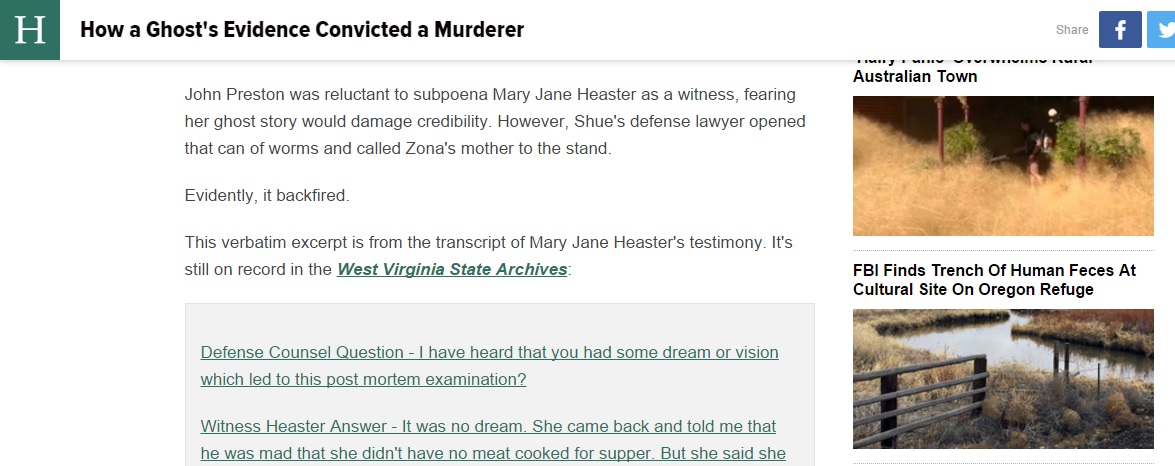
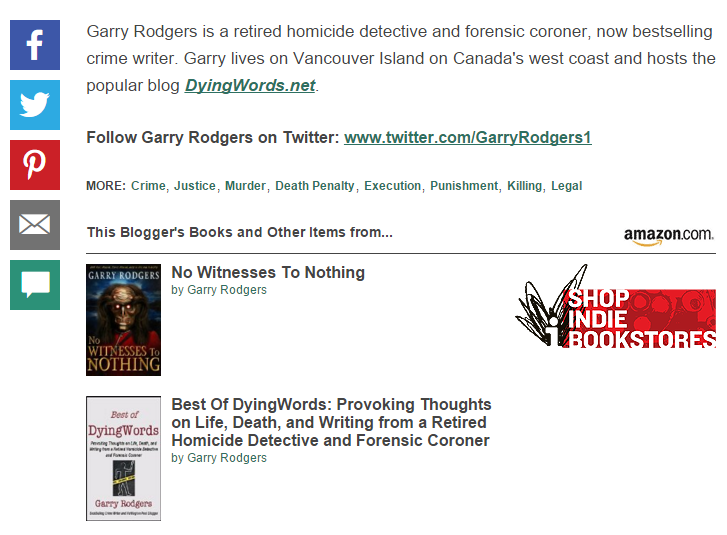
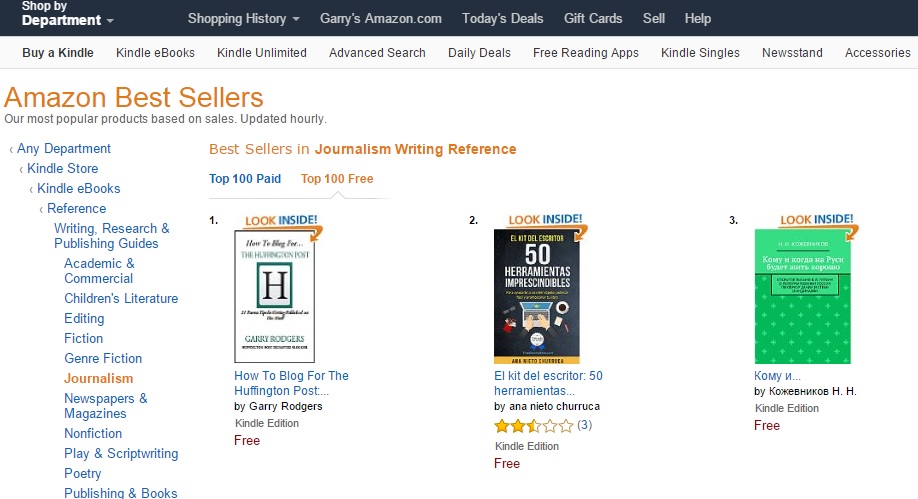


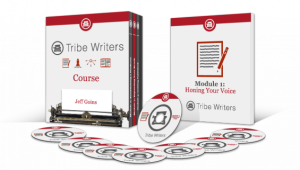




 Jon Morrow holds his numbers closer to his chest. He probably has half a million subscribers and at least six expensive stand-alone products on three different blog sites.
Jon Morrow holds his numbers closer to his chest. He probably has half a million subscribers and at least six expensive stand-alone products on three different blog sites.






